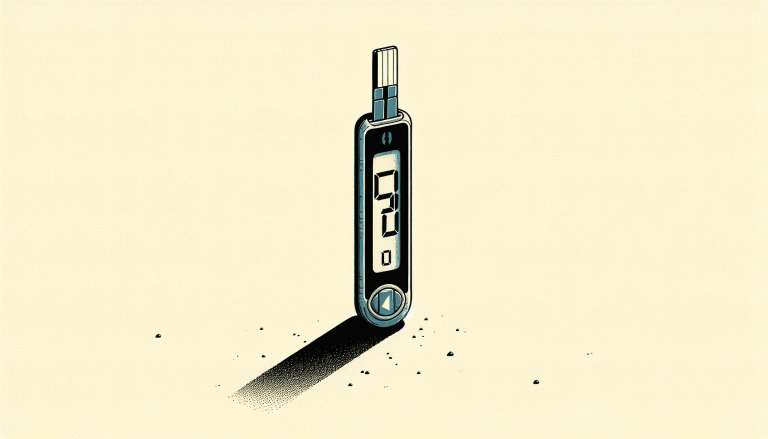Can I Live A Normal Life With Diabetes?
Living with diabetes can feel overwhelming at first, but with the right knowledge and attitude, you can absolutely lead a normal and fulfilling life. From managing your blood sugar levels and understanding dietary choices to incorporating regular physical activity, there are many strategies you can employ to keep your diabetes in check. In “Can I Live A Normal Life With Diabetes?”, you’ll discover practical tips and heartfelt insights to help you navigate daily life, maintain your health, and find joy in every moment. Whether you’re newly diagnosed or have been living with diabetes for years, this guide offers hope and actionable advice to ensure that your condition doesn’t define you. Have you recently been diagnosed with diabetes and are wondering, “Can I live a normal life with diabetes?”
The answer is a resounding “Yes!” Living with diabetes, whether it is Type 1 or Type 2, does not mean you have to give up on living a fulfilling and normal life. With advancements in medical science, a better understanding of the disease, and a commitment to healthy habits, you can manage diabetes effectively.

Understanding Diabetes
What Is Diabetes?
Diabetes is a chronic health condition that affects how your body turns food into energy. When you eat, your body breaks down most food into sugar (glucose) and releases it into your bloodstream. When your blood sugar goes up, it signals your pancreas to release insulin. Insulin acts like a key to let the blood sugar into your body’s cells for use as energy.
Types of Diabetes
There are primarily two types of diabetes:
| Type | Description |
|---|---|
| Type 1 Diabetes | An autoimmune condition where the body attacks the insulin-producing beta cells in the pancreas. |
| Type 2 Diabetes | A condition where your body cannot use insulin efficiently. It is the more common type and is often associated with lifestyle factors. |
Symptoms of Diabetes
Recognizing the symptoms early can significantly improve quality of life and diabetes management. Some symptoms include:
- Frequent urination
- Increased thirst
- Unexplained weight loss
- Fatigue
- Blurred vision
Life with Diabetes
Medical Management
One of the first steps in managing diabetes is getting the right medical advice and treatments.
Medication and Insulin
You may need to take medication or insulin to manage your blood sugar levels. Type 1 diabetes generally requires insulin, while Type 2 can sometimes be managed with oral medications.
Regular Check-ups
Regular check-ups are vital. Your healthcare provider will monitor your condition and adjust your treatment plan as necessary.
Monitoring Blood Sugar Levels
Keeping an eye on your blood sugar levels intermittently each day helps in making informed decisions about diet, exercise, and medication.
Diet and Nutrition
Diet plays a crucial role in managing diabetes. You don’t have to give up your favorite foods entirely but making healthier choices is essential.
Balanced Nutrition
A well-balanced diet should include:
- Carbohydrates: Choose complex carbs such as whole grains over simple sugars.
- Proteins: Lean proteins can help keep blood sugar levels stable.
- Fats: Healthy fats, like those found in avocados and nuts, are beneficial.
Portion Control
Being mindful of portion sizes can prevent overeating and help maintain steady blood sugar levels.
| Food Type | Recommended Servings |
|---|---|
| Vegetables | 4-5 servings daily |
| Fruits | 2-4 servings daily |
| Proteins | 2-3 servings daily |
| Grains | 6-8 servings daily |
Exercise and Physical Activity
Physical activity is another critical aspect of diabetes management. It helps control weight, improves insulin sensitivity, and boosts mental well-being.
Types of Exercise
Different types of exercise can be beneficial, including:
- Aerobic Exercise: Activities like walking, running, or cycling, help reduce blood sugar levels.
- Strength Training: Building muscle can improve how your body handles blood sugar.
- Flexibility and Balance Exercises: Activities such as yoga can enhance your overall fitness.
Creating a Routine
A routine that includes at least 150 minutes of moderate-intensity or 75 minutes of high-intensity exercise per week is generally recommended.
Mental Health
Living with a chronic condition like diabetes can take a toll on your mental health. It’s essential to address this aspect as well.
Coping Strategies
- Mindfulness: Practices like meditation can help manage stress.
- Support Groups: Connecting with others in similar situations can provide emotional support.
- Professional Help: Don’t hesitate to seek help from mental health professionals when needed.
Social Life
Living with diabetes doesn’t mean you have to shy away from social activities. With a few adjustments, you can enjoy a fulfilling social life.
Dining Out
When dining out, specific strategies can help keep you on track, such as:
- Checking the menu ahead of time for diabetic-friendly options
- Asking for modifications like dressing on the side or grilled instead of fried food
Traveling
Traveling requires some additional preparation, including:
- Carrying snacks that are good for your blood sugar levels
- Keeping medications and medical documentation handy
Work and School
Managing diabetes while balancing work or school commitments is another area where planning can pay off.
Informing Key People
It’s beneficial to inform a few people at your workplace or school about your condition. They can provide assistance if needed.
Meal Planning and Breaks
Plan your meals and breaks to avoid blood sugar spikes or dips.
Emergency Preparedness
Having a plan for diabetes-related emergencies is crucial.
Emergency Kit
An emergency kit can include:
- Extra medications and supplies
- Glucagon kit to counteract severe low blood sugars
- Contact information for healthcare providers
Technological Aids
Advancements in technology have made it easier to manage diabetes.
Continuous Glucose Monitors (CGM)
CGMs provide real-time blood sugar readings, offering more accurate data to manage your condition.
Insulin Pumps
Modern insulin pumps are quite user-friendly and can even integrate with CGMs for automatic adjustments.
FAQs About Living with Diabetes
Understanding frequently asked questions can offer additional insights.
Can I Eat Sweets?
Yes, but in moderation. Balance them with other foods to avoid blood sugar spikes.
Can I Play Sports?
Absolutely! Many athletes manage diabetes successfully. Always consult with your healthcare provider for personalized advice.
Will Diabetes Affect Life Expectancy?
With proper management, many people with diabetes live long, healthy lives.
Conclusion
Living a normal life with diabetes is not only possible but also attainable with the right management and lifestyle choices. You have the power to take control of your health and enjoy a fulfilling life. Always consult your healthcare providers for personalized advice and never be afraid to seek support from your community or loved ones. With the right tools and mindset, you can live well with diabetes every day.

Additional Resources

If you’ve been battling high blood sugar and diet & exercise haven’t yielded the results you hoped for…
A prominent medical expert has uncovered an extraordinary breakthrough that you need to know about.
Participants in a recent double-blind study who tried this special combination of ingredients… Not only witnessed significant improvements in insulin sensitivity… But also achieved well-regulated blood sugar levels.
In addition, they managed to lose an average of 27 lbs during the experiment.
Imagine simply incorporating this unique blend of ingredients into your breakfast or dinner… And effectively managing your blood sugar levels – without restrictive diets, grueling workouts, or dubious medications.







